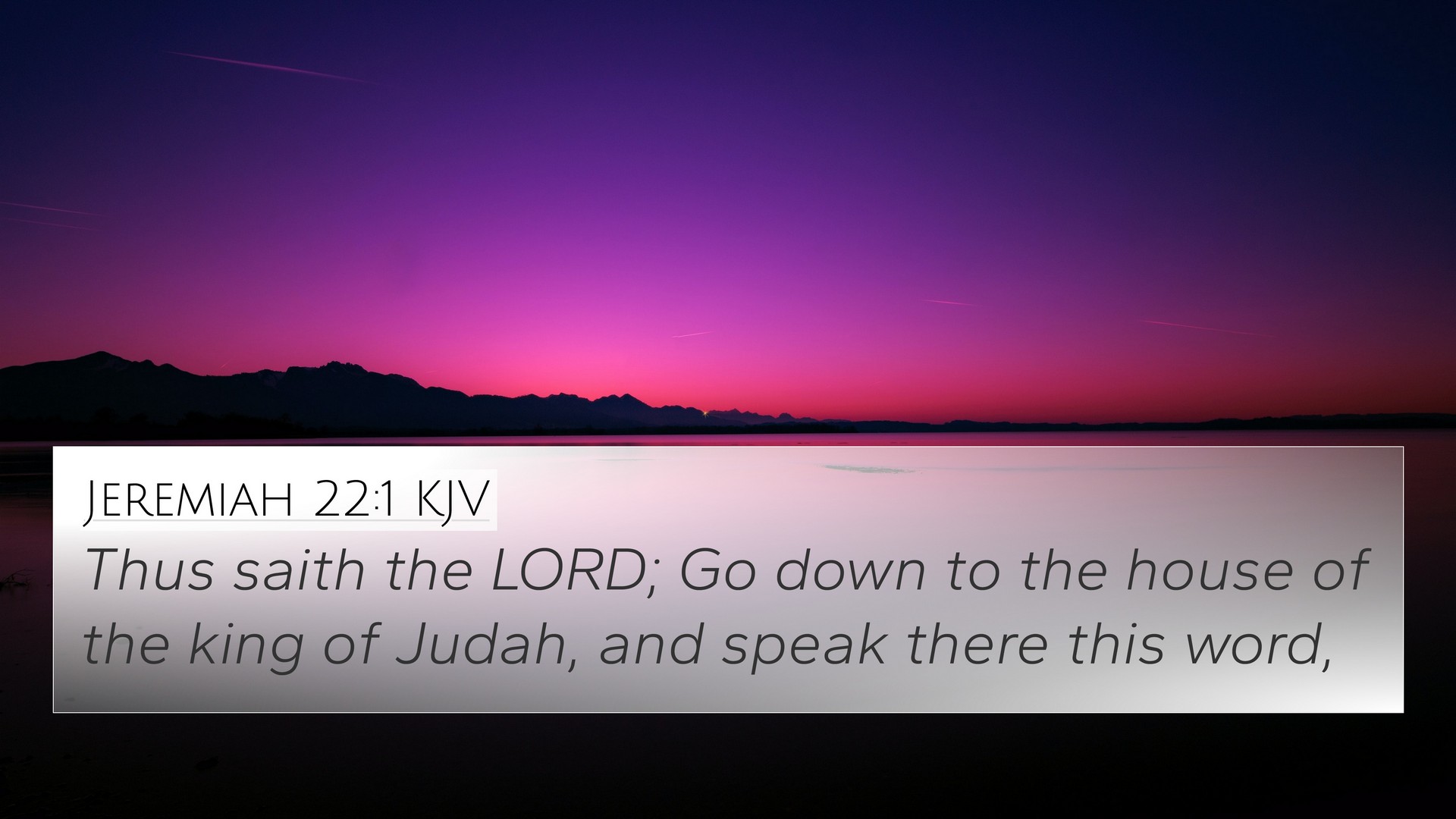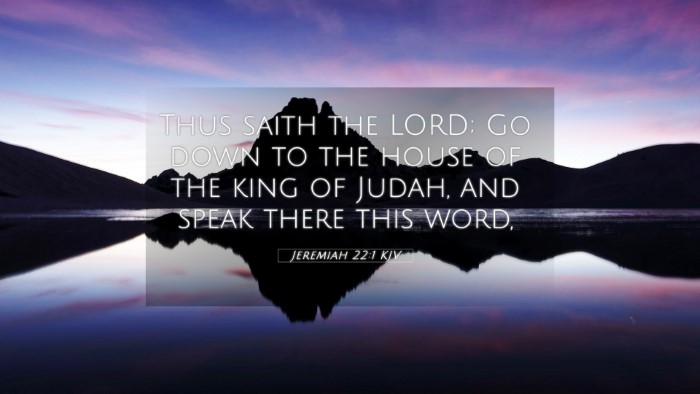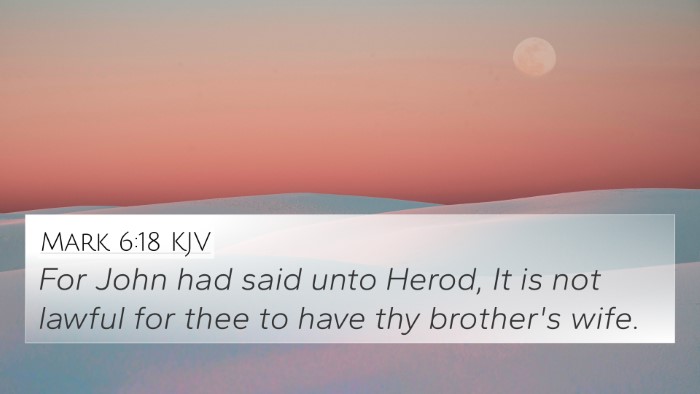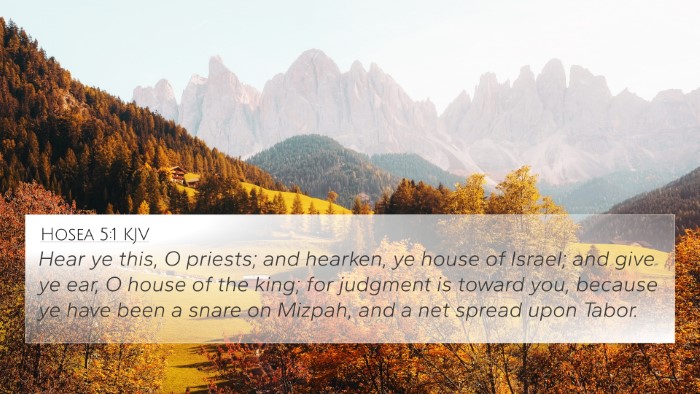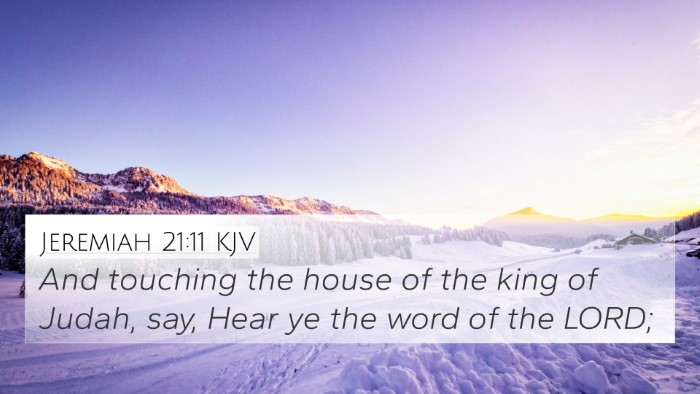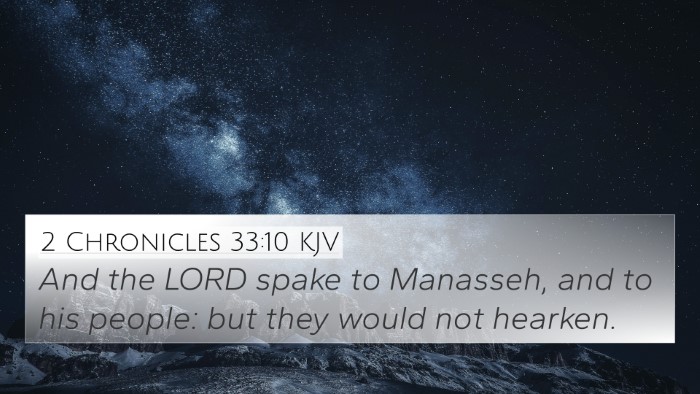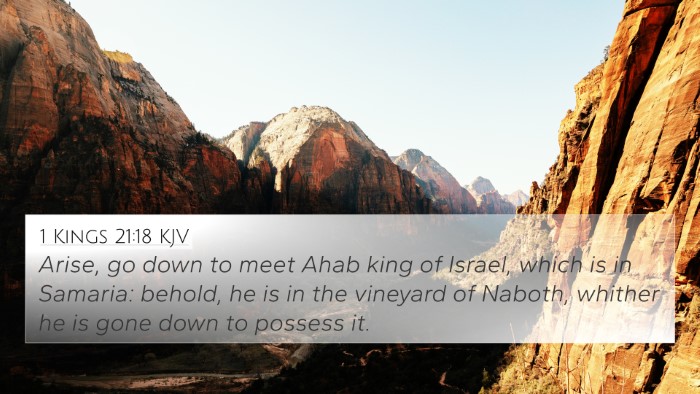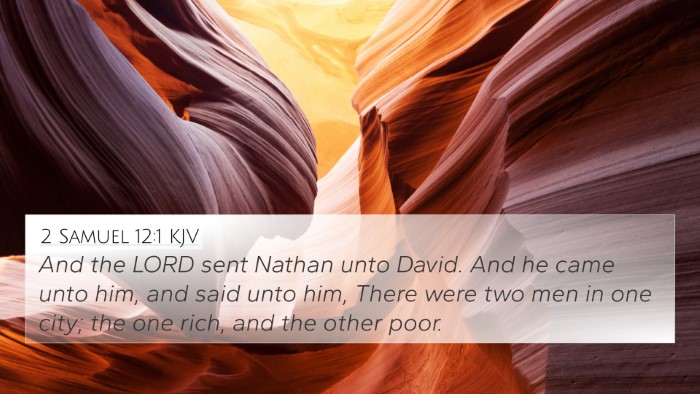Understanding Jeremiah 22:1
Jeremiah 22:1 states:
"Thus saith the Lord; Go down to the house of the king of Judah, and speak there this word."
Summary of Jeremiah 22:1
This verse serves as a divine directive where God commands Jeremiah to deliver a message directly to the king of Judah. It emphasizes the prophet's role as a mouthpiece for divine instruction, pointing to the seriousness of God's words concerning leadership and governance.
Interpretation and Commentary Insights
Insights from reputable public domain commentaries provide a deeper understanding of this verse:
-
Matthew Henry:
Matthew Henry highlights the weight of the message, drawing attention to the king's responsibility in leading God's people. The call to go to the king signifies the importance of addressing those in power and their moral and spiritual obligations.
-
Albert Barnes:
Barnes notes the context of impending judgement for Judah due to the king's actions and the people’s disobedience. He emphasizes that God's message is one of warning and calls for repentance, underscoring the king's role in the spiritual health of the nation.
-
Adam Clarke:
Clarke elaborates on the significance of Judah's leadership and the necessity of conveying God's will to those in authority. He points out that the king's decisions impact the entire nation, making the prophetic message critical for national survival.
Bible Verse Cross-References
To enrich our understanding of Jeremiah 22:1, it is essential to explore related scriptures. Here are 10 key verses that cross-reference its themes:
- 2 Kings 23:1-3: This passage illustrates the king of Judah's obligation to uphold covenantal duties before the people.
- Isaiah 1:10-17: God emphasizes the importance of justice and righteousness, which direct connections can be made with the calls to the leadership in Jeremiah.
- Jeremiah 21:12: This verse echoes the themes of justice and the consequences of the king's failures in governance.
- Ezekiel 34:1-10: God delivers a message against the unfaithful shepherds of Israel, closely related to the king's role in Judah.
- Micah 3:1-3: A critique of corrupt leaders and a call for right leadership parallels the message Jeremiah must deliver.
- Matthew 23:1-4: Jesus addresses the responsibilities of leaders, which resonates in the context of prophetic messages to kings.
- Romans 13:1: This New Testament verse discusses the divine authority of rulers, connecting the impact of leadership across the Testaments.
- 1 Timothy 2:1-2: Calls for prayers for those in authority, connecting the spiritual needs with governmental responsibilities.
- Psalm 82:1-4: Highlights God's judgment on unjust rulers, aligning with the prophetic rebuke seen in Jeremiah.
- Proverbs 29:2: An insight into how righteous rule brings joy to the people, contrasting with the implications of poor leadership.
Thematic Connections
The verse and its commentaries reveal essential themes that are interwoven throughout both the Old and New Testaments:
- Leadership and Responsibility: The role of leaders in the spiritual health of their nations.
- Divine Judgment: The consequences of failing to heed God’s warnings.
- Prophetic Authority: The responsibility of prophets to deliver God’s messages to those in power.
Tools for Bible Cross-Referencing
Studying connections between Bible verses enhances understanding. Here are some effective tools and methods:
- Utilizing a Bible concordance to find terminologies and common themes.
- Employing a Bible cross-reference guide to discover related passages throughout the scriptures.
- Engaging in cross-reference Bible study for deeper exploration into themes and verses that relate to one another.
- Exploring comprehensive Bible cross-reference materials for academic and personal studies.
Cross-Referencing Bible Study Methods
Understanding how to utilize cross-references within the Bible can greatly increase scriptural knowledge:
- Finding cross-references: Begin with key verses and look for themes that resonate elsewhere in the Bible.
- Identifying connections: Trace how themes develop from the Old Testament to the New Testament and cross-reference accordingly.
- Comparative studies: Engage in series of studies that compare verses from Gospels to the Epistles.
Final Thoughts
The call in Jeremiah 22:1 serves as an important reminder of the serious charge given to leaders. The insights and connections drawn from commentary and scripture inform contemporary understanding of justice, accountability, and the prophetic voice in society. Scriptures are interwoven through time, and recognizing these cross-references can deepen one's faith and understanding of God's intention for leaders and His people.
